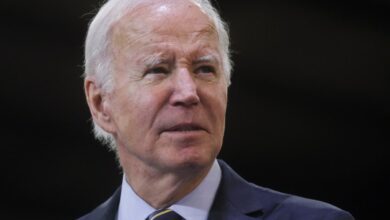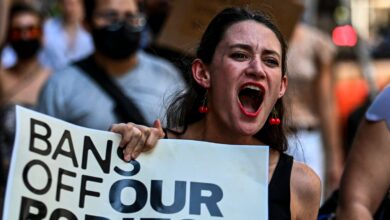Is America ready for legal weed?

In a speech to the US Senate on 20 April, Senate Majority Leader Chuck Schumer declared an “unofficial American holiday” for a drug that is still, for the most part, illegal.
The New York senator said the date was “as appropriate a time as any” to revive federal efforts to legalise cannabis, ending a decades-long front in a failed drug war that has jailed thousands of Americans.
“The weirdest thing I ever saw,” is how Erik Altieri, executive director of NORML, the nation’s leading organisation dedicated to ending cannabis prohibition, describes it.
“It took some work to get the baby boomer and older generation to realise how important this is as a policy, but it seems all that effort and education has paid off,” he tells The Independent.
The following month marked the 50th anniversary of former president Richard Nixon’s declaration that drug use would be “public enemy number one” in what became a global War on Drugs.
Now it could only be a matter of time – and getting over the seemingly infinite hurdles in a repeatedly deadlocked Congress – before the federal prohibition on cannabis “is relegated to the dustbins of history,” Mr Altieri says.
In a memo to lawmakers this month, US Reps Earl Blumenauer and Barbara Lee said Congress is “primed for progress in 2022” and “closer than ever to bringing our cannabis policies and laws in line with the American people.”
“For decades, young men – disproportionately young men and women of colour – are arrested and jailed for even carrying a small amount of marijuana, a charge that often came with exorbitant penalties and a serious criminal record from which they may never recover,” Senator Schumer said in his remarks.
“It makes no sense,” he said. “It’s time for change.”
Within less than a decade, more than a dozen states have legalised recreational cannabis, and more than half of US states have decriminalised its use in some form. Eighteen states, two territories and Washington DC have passed legislation supporting recreational cannabis.
In 2021, five states – Connecticut, New Jersey, New Mexico, New York and Virginia – passed such legislation.
But it remains on the federal list of controlled substances, which places drugs into five “schedules”.
Schedule one drugs have “no currently accepted medical use and a high potential for abuse”, according to the federal government. Among them: Heroin, LSD, ecstasy, peyote – and cannabis.
Among the 15 states where the issue has been on the ballot since 2012, it has won in 13, continuing a trend as lawmakers refuse to wait to hold an election to get weed reform on the ballot.
“We finally hit a tipping point in political support that we’re seeing this being taken seriously and being acted upon by lawmakers in the states that aren’t even waiting to defer to voters on an election cycle,” Mr Altieri says. “That has really filtered up in terms of what we’re seeing at a federal level.”
National public opinion has shifted dramatically over the years to favour legalisation, while a majority of US states have now legalised its medicinal use.
A recent Pew Research Center poll found that as many as 91 per cent of Americans support cannabis legalisation in some form, with 60 per cent believing it should be legal to use recreationally, and 31 per cent believing it should be allowed only for medicinal use.
A 2020 Gallup poll – which first measured the public’s views of cannabis legalisation in 1969, when only 12 per cent of the country supported it – found that Americans are more likely now than at any other point within the last five decades to support lifting the prohibition.
Roughly 68 per cent of American adults support legalising cannabis, including nearly half – 48 per cent – of Republicans, and 72 per cent of independents, according to Gallup.





